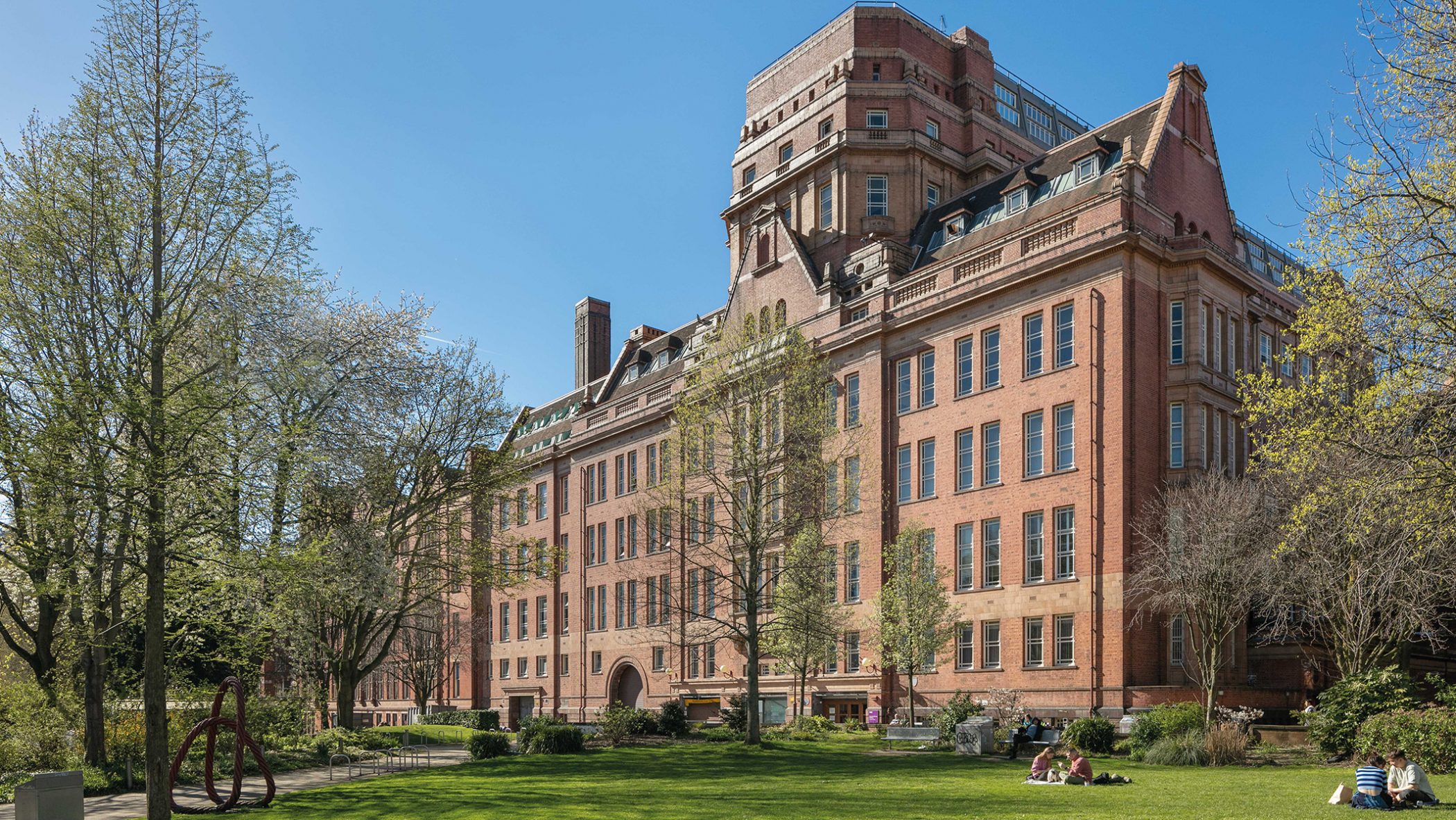Innovate Cambridge and ID Manchester launch strategic partnership
A progressive new partnership between the innovation clusters in Cambridge and Manchester aims to boost investment in both cities and across the UK.
The link-up will draw on the strengths of both cities to help them accelerate the scale-up of businesses and create new local jobs in sectors critical to the UK’s future prosperity.
Innovate Cambridge, established by founding partners Cambridge Enterprise, Cambridge Innovation Capital and the University of Cambridge to champion the Greater Cambridge innovation ecosystem, and ID Manchester, a joint venture between The University of Manchester and Bruntwood SciTech that is set to become a world-leading innovation district, are launching a strategic partnership to build on the existing links between the two science and tech hotspots.
This collaboration, starting this month, will connect Manchester’s rapidly growing tech scene, the UK’s largest outside London and the South East to Cambridge’s established ecosystem, which last month was named the most intensive science and technological cluster in the world for a second year running by the Global Innovation Index.
Lou Cordwell, Director, ID Manchester:
“This is a pioneering partnership that brings together two of the UK’s key innovation cities, with highly complementary offerings and ambitions to create an ambitious new cross-UK innovation cluster. Both partners have exceptional science and tech assets and ecosystems, including their globally renowned academic institutions, underpinned by our shared ambitions to deliver a more inclusive model of innovation. Our joint commitment to collaborating on this agenda will help ensure our respective local communities feel the positive economic and social impact of this growth whilst also helping to power the UK’s success as a science superpower.”
Tabitha Goldstaub, Executive Director, Innovate Cambridge:
“Cambridge and Manchester have many established ties in the innovation space and deepening these connections is a win-win for both cities and the businesses operating in them. This collaborative effort leverages the respective strengths of both cities to ensure we are greater than the sum of our parts.”
Despite the geographical distance between them, the two cities already have a close relationship in this space. Major science and tech firms co-locate in both city regions including life sciences giant AstraZeneca, chip designer Arm and global streaming platform Roku. The University of Cambridge and The University of Manchester have strong ties, including collaborating on major national research and development initiatives such as the Henry Royce Institute and the Productivity Institute. There are also strong ties between the investment communities, through Cambridge Angels and Manchester Angels.
The ambitious collaboration has the backing of the mayors of Greater Manchester and Cambridgeshire & Peterborough, Andy Burnham and Nik Johnson, as well as Manchester City Council leader Bev Craig and Cambridge City Council leader Mike Davey. The proposals also support the Government’s ambitions for the UK to become a science and tech superpower. The vision for the alliance is to ensure benefits are felt by local communities in both cities.
Andy Burnham, Mayor of Greater Manchester:
“Greater Manchester and Cambridge are recognised globally as hubs for innovation. The partnership between ID Manchester and Innovate Cambridge can help us strengthen ties between our places, linking the pioneering research and outstanding businesses present in each. Our ambition is for Greater Manchester to be a high-growth, high-wage economy, where the opportunities created by innovation are accessible to all. By focusing on investment and business growth, this partnership supports that ambition.”
Dr Nik Johnson, Mayor of Cambridge and Peterborough:
“As a region, Cambridgeshire and Peterborough’s talents and innovations are matched only by our efforts and ambitions and we take great pride in being able to further our partnership with an equally well-resourced Greater Manchester. Being home to world-class academic and industrial institutions is as much a responsibility as it is an opportunity which this new venture signals our determination to live up to and realise.”
The first step in boosting links between the regions will include setting up physical hubs in both cities to strengthen and accelerate collaboration between researchers and entrepreneurs and act as a gateway to both ecosystems.
The partnership will also map the ecosystem of connections as it expands across academia, business and civic society, and work with the Department for Business and Trade, the government’s Office for Investment and local partners to identify options for attracting joint inward investment and co-location opportunities.
Underpinning the partnership is a shared commitment from both cities to an inclusive innovation-led growth agenda, leveraging business and political leadership, and accelerating growth in critical sectors like AI, digital tech, advanced materials, and health and biotech. The partnership will accelerate economic growth locally, regionally and nationally, and translate world-leading research into new jobs.

The Sackville Building, Manchester. Courtesy: ID Manchester.
In Cambridge, Manchester will find a hotbed of innovation and commercialisation, with 23 billion-dollar unicorn companies born in the city. The University of Cambridge is also the number one university in the world for producing successful tech founders, ahead of the likes of Harvard and MIT, with over 500 alumni founders raising more than $10 million in funding.
In Manchester, Cambridge will benefit from the dynamism of Manchester’s growing innovation ecosystem. Last year the city was recognised as the UK’s leading regional tech city and is also home to the fastest-growing university spin-out population in the UK. The University of Manchester was named number 1 both in the UK and Europe, and second in the world for social and environmental impact in the Times Higher Education Impact Rating 2023. It’s also the most popular university in the UK for undergraduate applications (UCAS 2021 cycle), and the most targeted university by the UK’s leading employers, according to The Graduate Market, 2023.
Innovate Cambridge was launched in 2022 as an ambitious Greater Cambridge initiative that aims to collectively agree on and define an inclusive vision for the future of Cambridge and its innovation ecosystem to be implemented over the next decade. ID Manchester will see The University of Manchester’s former North Campus transformed into a 4 Million square foot innovation district, combining the University’s world-class research strengths with the experience of Bruntwood SciTech, a 50:50 joint venture between Bruntwood and Legal & General, in delivering connected science and technology infrastructure.
Cllr Bev Craig, Manchester City Council Leader:
“Both Manchester and Cambridge are leaders in science and tech innovation and research – and we share parallel ambitions to create world-renowned ecosystems to support sustainable and inclusive growth in our key sectors. Collaborating on our shared ambitions is a win for both of our cities, helping to create opportunities that will support economic growth – but fundamentally, ensure that the positive impact is felt across our communities, creating pathways to jobs and life chances that might otherwise be unavailable to our residents, while helping to improve our population’s health and wellbeing.”
Cllr Mike Davey, Cambridge City Council leader:
“This partnership will lead to new ideas, jobs, and enable ground-breaking discoveries to be scaled-up in the North West. Here in Cambridge we are excited to put inclusive innovation at the heart of what we are trying to achieve locally and for the UK economy.”
Tags: Andy Burnham, Bev Craig, Bruntwood SciTech, Cambridge, Cambridge and Peterborough, Cambridge City Council, Cambridge innovation capital, cluster, Greater Cambridge, Greater Manchester, ID Manchester, Innovate Cambridge, innovation, Lou Cordwell, Manchester, Manchester City Council, Mike Davey, Nik Johnson, Tabitha Goldstaub, University of Cambridge, University of Manchester










